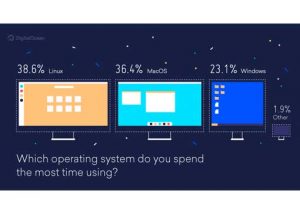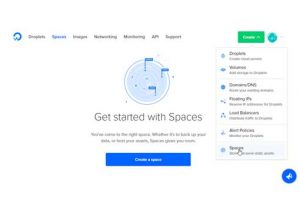Data is driving each and every business, regardless of industry or company size. Each and every IT expert is constantly faced with the challenge of how to keep up with the rapid changes in data and data storage because these changes are shifting the business landscape. In February of this year, Waterford Technologies reported that at least 2.7 Zettabytes of data existed in the digital universe. It’s certainly easy to see why (and how) the overall size of data is growing: data is coming from more and more sources. Whether it be smartphones, tablets, laptops, desktops, IoT, or any other sources, the amount of data being exchanged and transferred is staggering. These large data sets can be overwhelming and cause issues for businesses that rely heavily on data to meet their goals. And on top of this, if this data is not stored or analyzed correctly, these data sets can be nothing more than troublesome. So it’s easy to see why the same report revealed poor data could cost 20% to 35% of a company’s operating revenue.
As the global volume of electronic data increases daily at an exponential rate (that shows no signs of slowing), it’s no surprise that many of today’s businesses are migrating their data to effective storage technologies. Thankfully, innovations in technology have helped to create efficient and cost-effective storage options in conjunction with data management tools that can ultimately help companies store, manage, and analyze their data in an effective manner.
SourceForge recently spoke with Greg Warden, the Vice President for Engineering at DigitalOcean, to talk about infrastructure, data storage, and cloud computing services, and how these solutions can still be attainable without costing an arm and a leg.
Q: Can you share with us a brief background of DigitalOcean (history, founding year, industry, products, etc.) as well as the company’s vision, mission, and some of the current clients DigitalOcean is working with?
A: DigitalOcean is a cloud services platform designed for developers that businesses use to run production applications at scale. We provide highly available, secure and scalable compute, storage and networking solutions that help developers build great software faster. We were founded in 2012 in New York and have since expanded with another office Cambridge, MA. We offer simple services, transparent pricing, an elegant user interface, and one of the largest libraries of open source resources available.
Q: What are some of DigitalOcean’s products? And what are the company’s target markets?
A: Engineering teams around the world rely on DigitalOcean for simple products and services to run their production deployments at scale. Our servers scale up in seconds and we have intuitive solutions for storage, security, and networking.

Greg Warden, the VP of Engineering at Digital Ocean
Our products are designed for developers, who know DigitalOcean gives them highly available and reliable tools that will uncomplicate their infrastructure so they can build great software. Businesses know they can run distributed SaaS applications, process and analyze data sets, automate code testing and deploy open source tools cost effectively and at scale.
In September, we launched our object storage offering, Spaces, our seventh new product in a year and a half. Other recent product releases include Block Storage, Cloud Firewalls and Monitoring.
Q: How is DigitalOcean’s infrastructure service designed specifically for developers? What are the special needs of developers that most Infrastructure as a Service (IaaS) companies are not able to easily address?
A: At DigitalOcean, simplicity is key. Enterprise-grade infrastructure can often be complex, frustrating and expensive for developers. By offering a beautiful, easy-to-use user interface paired with powerful technology and a transparent pricing model, we allow developers to run their workloads quickly, efficiently and at a reasonable cost.
Developers want to spend less time managing their infrastructure and more time coding. Our focus on creating elegant, simple solutions is our differentiator – it’s what we’re known for and why our users love us.
Q: You are offering a private virtual machine (VM) service called “Droplet”. How does this service work? What makes it different from other VMs?
A: DigitalOcean Droplets are easy-to-deploy, resizable SSD-based virtual machines that are billed hourly. Users can choose to deploy Droplets in any DigitalOcean datacenter location around the world and can control them through our API. Users also have the option to deploy specialized High CPU and High Memory Droplets, tailored to their computer and RAM needs. On top of that, we provide integrated security, networking, and monitoring features at no additional cost.
Q: You recently unveiled DigitalOcean Currents in an effort to provide a complete report on developer trends. What were the motivators behind this report? Who were the respondents? And what are some of the significant findings you uncovered?
A: Because of our focus on making things easier for developers, we’re always interested in understanding how they work in a landscape that is constantly changing. We’ve found that the best way to find out what developers want is to ask. That’s why we released our inaugural DigitalOcean Currents survey, a quarterly temperature check on developer trends, this past September.
We reached out to developers, systems administrators and other technology professionals from around the world, collecting over 1,000 survey responses from our customer and social communities. We asked about their preferred tools and technologies, development habits and cloud strategy predictions. We also used our internal data to gather additional insights on how developers are using DigitalOcean specifically.
Some of the interesting findings from our first survey:
- The market is ripe for cost-effective storage solutions. Less than half of respondents (45%) currently have an object storage solution. But over the past 5 years, a majority (53%) of them have researched 1-2 object storage solutions for purchase, while another 11% had considered 3-4, indicating an uptick in the adoption of object storage.
- Moving to multi- or hybrid cloud isn’t a given for everyone, despite analyst predictions to that effect. The majority of survey respondents said they aren’t planning to use simultaneous cloud services in the next year.
- Linux Popularity: Developers and sysadmins spend more time using Linux (39%) compared to 36% percent who use MacOS and only 23 percent using Windows – showing the differences for the developer segment compared to the overall market share.
Q: What developer trends or current market movements will likely influence the future of the cloud computing industry?
A: While it has been underway for some time now, the movement towards containerization is still picking up steam. It is changing the way we build and deploy software across the industry as more companies continue to embrace cloud-native solutions. However, this comes with a number of challenges. Systems are becoming more complex and distributed. For instance, at DigitalOcean we are running thousands of containers in production across our Kubernetes clusters. Coming up with simple and elegant solutions to manage this complexity is a place where there are still many opportunities for innovation.
Q: DigitalOcean also unveiled ‘Spaces’ object storage this month. Can you share with us a bit of background on this product? How is object storage different from block storage?
A: We introduced Block Storage last year to allow users to expand the disk capacity provided by the core Droplet’s SSD drives, with highly available network attached drives, allowing you to mix and match compute and storage to suit your database, file storage, application, service, mobile, and backup needs. These drives can be scaled from 1GB to 16TB, are replicated automatically for reliability purposes, and can easily be moved between Droplets.
Spaces, on the other hand, allows users to store large files as single data objects (such as images and large media files, backups and logs) easily accessible from any Droplet or external application with the right credentials. Unlike block volumes, Spaces automatically grow with your usage with no initial pre-set limits.
Spaces was born out of more than 2,000 requests from the DigitalOcean community for a scalable object storage solution with 90,000 early access users beta testing the product.
Despite the technical complexity of launching a product like this, we’ve worked incredibly hard to ensure Spaces maintains the same ease-of-use and effortless user interface as our other products. We wanted to simplify the way developers can innovate so they can spend time building great software.
Q: How will your ‘Spaces’ object storage solution help developers address their complex storage needs?
A: Unlike other object storage offerings, Spaces requires no configuration, allowing developers to deploy this storage in seconds to store things like static assets, images and movies, and backup files and logs.
Pricing for current object storage products is complex and hard to forecast. DigitalOcean’s focus on simplicity extends to the transparent pricing structure for Spaces, which offers a nearly 10X reduction in object storage costs compared to other cloud providers.
Pricing starts at $5 for 250GB of storage and 1TB of outbound transfer. Additional storage is available for 2 cents per GB per month, and 1 cent per GB served out to the internet. Uploads to Spaces are free and all users can sign up for a two-month free trial.
Q: What are some developments or innovations that DigitalOcean is in the process of pursuing? And what can customers expect from DigitalOcean in the future?
A: The next step for us geographically will be a deeper expansion into the European market, including the release of Spaces in our Amsterdam data center. On the product front, we will be offering new services for containers, increasing our security offerings and releasing new features for Spaces.
About DigitalOcean
DigitalOcean, Inc. is a cloud infrastructure provider most popular for its deployable and scalable cloud services. They are a team with a mission to make the lives of developers all over the world easier. With a philosophy that is collaboration-focused, remote-friendly, and flexible, DigitalOcean is able to support the growth of its employees and the clients they are serving. Established in 2011, the cloud infrastructure provider is headquartered in New York City, New York.
